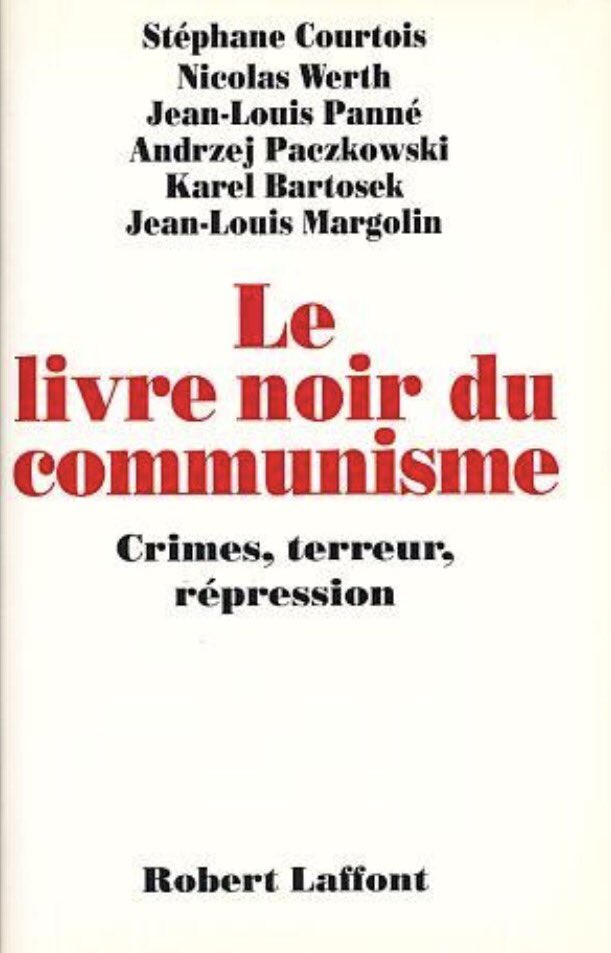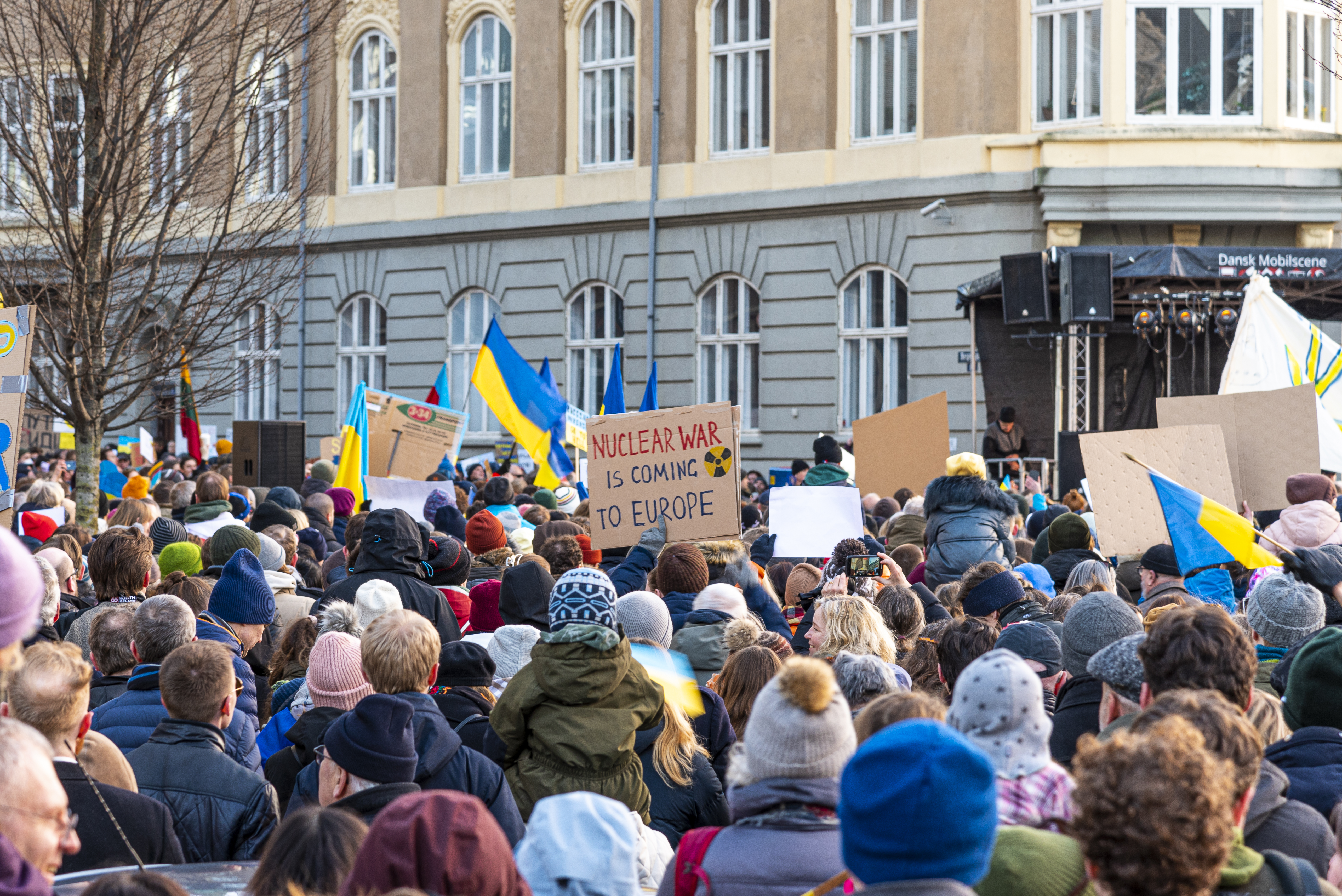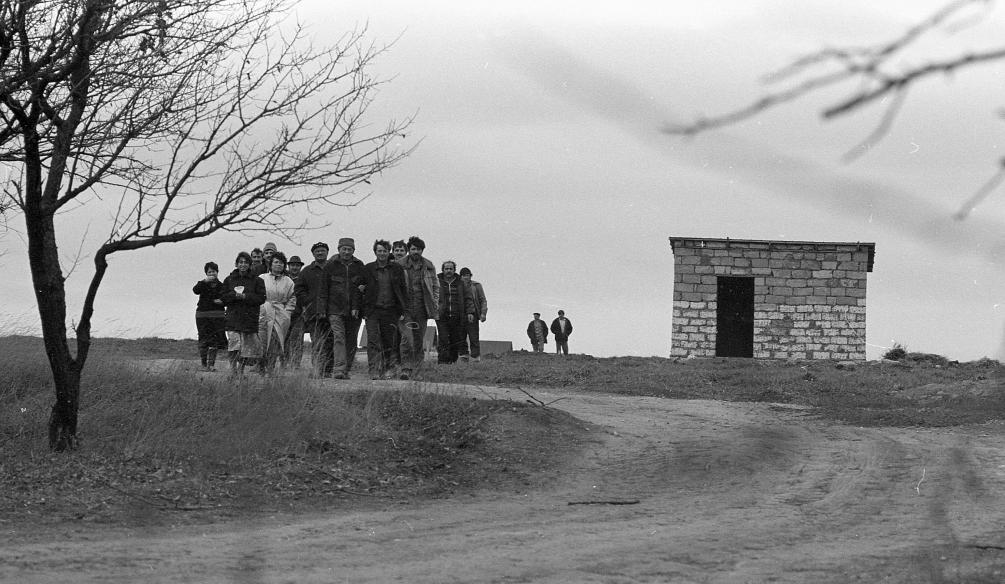Many thanks to Gérard-Danial Cohen for his critical comments. This text results from a presentation at the workshop After Critical Theory? convened at Queen Mary University London by Eric Heinze, 2 February 2024. Many thanks to him, too, as well as to Jan Čulík, who originally published this piece in Britské listy.
May 1968 in Paris must have been great fun. “Beneath the cobblestones lies the beach” claimed the slogan: believers in Marxism, Leninism, Maoism, Trotskyism, and just about any other leftist ideology joined forces to throw themselves at the archaic and authoritarian De Gaulle rule. Energetic youths occupied universities, set up barricades, and fought the police in epic battles that left seven people dead, while the country went on general strike for weeks. While this level of violence might not be very commendable, and the naiveté of the political ideals makes us shake our heads in disbelief, especially as seen from Prague where people were already by then substantially wiser to the destructive potential of these ideologies, the intentions were noble enough. The movement did profoundly change French society for the better, from a very conservative society to one that was more open-minded, tolerant, and (self-)reflexive.
Translating ebullient idealism into a useful reflection on power
In the aftermath of May 1968, an ideological diversification among these youthful extreme left activists occurred, with a faction persisting in their defense of Mao Zedong, Vietnam, Cambodia, and related causes, while some others moved their advocacy towards the realm of historical memory. The activists and academics engaged on this memory path jointly decried for instance, in a calculated rejection of nationalism, the prevailing official reticence to talk about and acknowledge the complicity of the French state in the deportation of Jews during World War II and in the perpetration of massacres during colonial rule, particularly in Algeria. This general interest in historical memory also led to the inception of the renowned Lieux de mémoire book series, the inaugural volume of which was published by Pierre Nora in 1984, and manifested itself in the seminal film Shoah by Claude Lanzmann in 1985.
By 1990, the first memory law, one prohibiting the denial of crimes against humanity, first and foremost the Holocaust, was enacted – a law instigated by Minister Claude Gayssot, who was not too coincidentally a Communist. The ensuing decade featured trials against erstwhile Vichy officials Paul Touvier and Maurice Papon, as well as the pivotal acknowledgment in 1995 of the French state’s culpability in the deportation of its Jewish population, finally acknowledging at the state level what had been conscientiously taught in French schools for years if not decades. Concurrently, critiques of the archival policy governing access to Second World War records and pleading for their wider opening gained traction. In 2001, two additional memory laws were promulgated, thus underscoring an enduring commitment in France to reckon with and legislate upon the nation’s historical legacy.
We thus see a deliberate engagement with the past in France over several decades, the confrontation of latent historical specters, and the synthesis of history and memory to formulate a normative historiographical narrative. What is to be noted here is that this narrative conspicuously emanated from the left.
While this collective project was imbued with good intentions, some historians were already in the 1990s uneasy with its blatant moral rectitude – was it really necessary to enact memory laws that dictated to people not only what to say, but what to think? Would it not have been better to teach history with all the necessary dedication so that no one would even think of denying the existence of the Holocaust? Historian Henry Rousso, who was at the time head of the Institute of Contemporary History in Paris (IHTP), especially criticized the notion of the “duty of memory.”
Amusingly, in 1989, this left-leaning narrative hit a conservative counterpoint in the form of Francis Fukuyama’s “end of history” thesis, which was not a categorical assertion that historical events would cease to unfold, but rather the contention that the ideological ascendancy of democracy and capitalism had attained a seemingly irreversible domination. Fukuyama posited that even within non-democratic and non-capitalist regimes, a semblance of adherence to these principles prevailed, rendering them as the de facto unsurpassable intellectual and normative framework of the time. This framework found a new alternative only with 9/11. Fukuyama was much derided in France, yet he spelled out a new era, one in which capitalism stopped being a dirty word even in leftist circles. Instead, the world embraced the newly-spreading mass consumption culture with relish. This is doubtless the reason why the left started to shift from defending economic equality, a dream that was now losing traction, towards defending and defining identity via the development of critical theory.
1989 and the paradigmatic shift of the Western left
With this context in mind, let us consider the watershed collapse of communism in Central Europe in 1989, whose influence on the development of the Western left participated in the same movement of globalization. If I take the example of France and the Czech Republic, the fall of communism engendered a paradigmatic shift in which the French historiography and memory issues I just described became germane to nascent Czech and other Central European post-communist memory politics. All the themes evoked above, i.e. memory construction, justice, archival imperatives, the dynamics of suffering recognition, the exigency of confronting historical legacies, and the cultivation of a coherent state narrative suddenly assumed great pertinence in Prague, too.
In turn, France witnessed a significant intellectual recalibration on the part of a number of somewhat discomfited intellectuals, particularly historians. Previously entrenched within the left, some found themselves in an intellectual quandary, all the more so if they were already harboring doubts since Budapest 1956, Prague 1968, or Warsaw 1981. With the crisis and fall of communism, a few embarked upon a private or public path of self-criticism (as they had been dutifully instructed to do in their communist youth), mutating shortly before or shortly after 1989 into fervent anticommunists. Eminent historian François Furet, for instance, published memoirs which reflected their revised perspectives.
One of the most noteworthy endeavors within this intellectual landscape is the collaborative effort led by a formerly Maoist activist who belonged to the 1968 generation I described above and meanwhile became a historian, Stéphane Courtois. This effort resulted in his seminal edited work The Black Book of Communism (1997). The volume purported to provide a comprehensive assessment of global communist repression, and is the outlet that first introduced the famous claim of “100 million victims of communism.” Even before publication, Courtois, cognizant of the inflated figure’s untenability, revised it downward to 80 million – too late, the narrative of “100 million victims” was already set in international public stone and it remained there despite the fact that these figures are highly contentious among historians of communism themselves, not least of whom Nicolas Werth, who wrote the seminal part about the Soviet Union in this very book and who angrily publicized his breakup with Courtois.
Evolving ideologies, evolving figures
Figures were adapted to suit this change of perspective. I will take here as an example the chapter of Karel Bartošek, a French-Czech historian himself marked by fervent Stalinist sympathies in his youth, who now completed his metamorphosis and aligned with the anticommunist narrative. In the Black Book of Communism, he speaks of 250,000 Czechoslovak “victims.” This figure is starkly incongruent with the actual casualty toll, which is ranging from 3,000 to 5,000 deaths (which is, needless to say, 3,000 to 5,000 deaths too many). But Bartošek played on the ambiguity of the term “victim;” since he did not define what a victim was, the public assumed it meant “dead,” while what it meant was people who were condemned on the basis of law 231/1948. More than half of these sentences were fines, not prison sentences and even less judicial murders or deaths (not that they don’t deserve respect in any case).
The disjuncture in scale with the Nazi occupation of Czechoslovakia, which left 360,000 actual fatalities, is of more than 1 to 50, possibly closer to 1 to 100. To inflate the figures of communist repression so radically is all the more dishonest intellectually that one does not need to inflate the figures of Stalinist repression in Czechoslovakia and elsewhere to convincingly analyze the intrinsically repressive dimension of communism. But when conservative circles do inflate figures, their motivation is hardly historical. What they really aimed to achieve in this case was to discredit the whole left, not only the communists, and disqualify them as political opponents – not opponents at some distant point in history, but political opponents in the post-1989 regime.
When the “morally virtuous” French narrative meets the anticommunist Czech narrative
So we find here an unexpected confluence and interplay between a “multi-kulti” leftist-derived culture of memory and repentance, characterized by a pronounced “duty of memory,” and an emergent anticommunist narrative. The transfer of this narrative was largely carried out by scholars conversant with both sides of the cultural divide (Stéphane Courtois, Karel Bartošek) thanks to the fact that they transitioned from the extreme left in Western Europe (Courtois is a self-declared former Maoist; Bartošek hovered around the extreme left circle of the journal L’alternative when he arrived in France before taking it over and changing it to La nouvelle alternative in 1986, adapting to the impending collapse of the extreme left) to the anticommunist right or extreme-right in post-communist Central Europe and were familiar with both the French and the communist and post-communist contexts. What is important to understand is that they transposed the self-righteous form of the narrative, but inverted the contents.
While this historical memory and ideological realignment were negotiated in intellectual spheres after 1989, an arguably more important concern emerged in transitional Central Europe in the form of economic reforms that precipitated widespread popular impoverishment and a surge in economic inequality. Focusing here on the Czech Republic’s chronology, not even a decade after the Velvet Revolution the reemergence of the social-democratic party (ČSSD) and even of the communist party (KSČM) coincided with public discontent spurred by the economic crisis and with public outrage at the manifestly growing corruption of political elites. Considerable public pressure on the conservative right led in 1997 to Václav Klaus’ fall as Prime Minister, a position which he had held since 1992. We can thus appreciate that the Black Book of Communism seemingly fell from heaven for the Czech conservatives (ODS) and emerged as a pivotal political tool. Right on cue, it offered a propitious narrative that pinned culpability for all societal post-communist predicaments on the past and present left – and never mind that under this new narrative, the suffering endured by the Czech population during the communist era was magnified more than fifty-fold.
This is how and why memory politics in Czechia and more generally in Central Europe assumed an increasingly anticommunist, parochial, and conservative orientation during the 2000s. Irony abounds as Central European conservative political actors adopted nothing but the cosmopolitan, morally virtuous narrative structure initially crafted by the Western left in the 1970s and 1980s – a narrative characterized, as we saw, by its normative, justice-oriented, and mnemonic framing. The memory of the Shoah, originally conceived as a culture of human rights, a part of the original hope and enthusiasm for the “new enlarged Europe,” became a politically instrumentalized narrative. In other words, the memorial revolution inspired by sincere normative concerns, was politically instrumentalized to become the tool of the anticommunist right and even far right, especially in Poland and Hungary.
To complete this circle of irony, Laure Neumayer has shown that the accession of Visegrád countries to the European Union provided the opportunity to leverage the moral imperative surrounding Holocaust recognition and memory legislation in an anticommunist direction. The Visegrád countries used this paradigm to push for a moral equivalence between Nazism and communism, with a latent agenda in Hungary, Poland, and Romania to relativize the Holocaust by challenging its uniqueness. Admittedly, this was not the primary intent in the case of the Czech Republic – here, the aim was to relativize the suffering and casualties caused by the bloody expulsion of the Sudeten Germans from Czechoslovakia in 1945-46. The point is, nowhere was it to promote collective awareness and face responsibilities as had been the case in France in the 1970s and 1980s.
Conclusion: adopting the “cool” Western narrative of reckoning with the past had its own agenda
The appropriation of formerly Western values in their form if not in their intention was complete. Czech law 405/2000 which punishes the denial not only of the Holocaust anymore, but also of an unspecified “communist genocide,” by imprisonment for up to three years, is a pertinent illustration of this incongruous cultural transfer. No scholar has ever seriously defended that a “communist genocide” took place in Czechoslovakia; on the contrary, as I underlined above, the scale of victims is of almost 1 to 100 in comparison to Nazism (and more to the point, of approximately 1 to 10 in comparison to the expelled Sudeten Germans).
There were of course at least two documented communist genocides in the world: one in Ukraine (the Holodomor), and one in Cambodia. But it is of doubt that the Czech lawmaker primarily meant to protect the memory of the Ukrainian Holodomor, let alone of the Cambodian genocide, which are of very little interest to the Czech voter. What it did have in mind was to enter the club of prospective tolerant EU nations and to promote, on the surface, the prerequisite EU “grammar of reconciliation.” That it promoted a narrative of competitive victimhood with Western Europe at the risk of both inflating the figures of communist repression and relativizing the Holocaust was a historical bonus, which might not have been entirely calculated. A paradox is that Czech proponents of anticommunism who are simultaneously starch defenders of Holocaust memory such as Michael Žantovský and Michal Klíma found themselves defending a narrative that is potentially relativizing the Holocaust without even realizing it.
Memory is political and it is constantly reshaped by the present; history is political, too, its methodology is in fact a war zone in Czechia and in the rest of Central Europe today – it is enough to observe the debate around everyday life history as a historical methodology. Transnational and transcultural memory politics show that history is always instrumentalized, sometimes in a more methodological and reflexive way and with praiseworthy ends – to promote societal reconciliation – but often, as here, with less than honorable political motives.
Muriel Blaive is a historian of communism and post-communism in Central Europe, especially in Czechia. She is currently an Elise Richter Fellow (FWF) hosted at the University of Graz in the Department of Sociology.
This piece was originally published on February 9th, 2024 on britskelisty.



The Making of Anticommunist Memory Politics: From Paris to Prague, from the extreme left to the extreme right